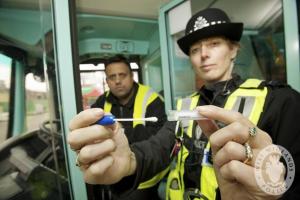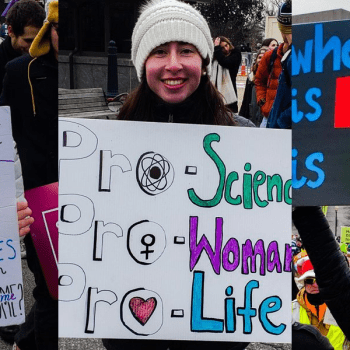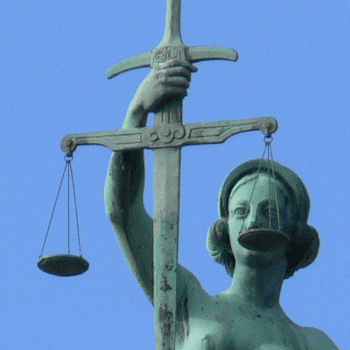
A string of recent cold cases have been solved by DNA. However, these cases are different. Instead of having a suspect and asking him for a sample, or even running the sample against a government database, they are taking it to ancestry sites to find relatives and narrow down the search.
At first glance, this seems like a good thing. I think we were all glad when the Golden State Killer was put behind bars 30 years after he finished his spree of killings. However, I think there are aspects of this testing that can get more uncomfortable for our own sense of privacy.
Catching Murders
In a classic case of genetic identification, police run crime scene DNA for a direct match. They might run this against a short list of suspects, against a government database such as criminals, or against those who volunteered after police asked people voluntarily. Forcing the collection of the DNA of more than handful of suspects is contrary to our right to privacy: both legally and morally.
However, what they are doing now is checking you against relatives using online databases where people put their DNA up to find lost relatives like 2nd cousins they didn’t know. This circumvents the privacy concerns listed above as people are voluntarily uploading the data so it isn’t a forced collection. However, as it can find relatives like second cousins, it goes far beyond where a person can hope to have any influence to prevent people from uploading. I have a realtively narrow family tree but going to second cousins on my mom’s side alone I was getting a few dozen, some of whom I’ve never met and don’t even know their names.
The New York Times has reported that a number of cases have been solved using this method. Beyond the Golden State killer, this method has identified a nurse who killed a 12-year-old in 1986, a DJ who sexually assaulted a schoolteacher in 1992, the murderer of a realtor in 1981, a 2001 suicide victim, a 1987 double-murder, six North Carolina rapes, the slaying of a Stanford grad, etc. Seventeen arrests have been made using these methods.
The Times article also mentioned that law enforcement often don’t even inform people when their DNA is used for this procedure. So if I upload my DNA, it could be used to catch my 2nd cousin who I didn’t even know existed.
What about Other Cases?
I think most of us feel like it is good to have justice done in murder and rape cases. I can see the point. However, when the same method was used for an assault case, there was public backlash. To quell fears, the website had to switch allowing law enforcement to use your DNA to an “opt-in” option.
Furthermore, imagine a person who is trying to build a positive life despite having a crazy family or extended family. This person goes in for a job interview, and, during the interview, they drink a cup of coffee. The company grabs the DNA from the coffee mug and uses similar DNA methods to find a whole family tree. This person has stayed on the straight and narrow as a background check came up empty, but looking at the extended family the employer sees that their dad was arrested for drugs and his brother was involved in a gangland murder. How does that affect a company’s hiring process?
I think most of us look with inspiration to someone who came out of a tough family situation like that to apply for a good job. Right now, that method used to track down family criminality is not difficult. The only obstacle is that it is illegal under section 202 of the Genetic Information Nondiscrimination Act (GINA). However, the technical aspect of that is well within what could easily happen today.
Or, imagine a bar that does a similar genetic test to find out which customers might become alcoholic and then bombards them with beer to get them going then grabs their money as they get drunker. Right now, the only thing stopping this is that it isn’t quite cheap enough to be economically effective.
Third, we have a case where it could likely be used. Let’s say you sign up for life insurance, which is excluded from GINA, and they run a DNA test. Now they can do two tests: first, find out risk factors based on genes, and second find out your extended family. The latter would allow an insurance company to raise your premiums due to the misbehavior of other family members. Is that moral?
We need to really think abut this cases as no matter how much they seem like sci-fi to us, these are relatively easy technically today.
Is My DNA Mine?
The question of genetic privacy requires us to ask two related questions: how does privacy protect what is intimate to me? And, how is my DNA one of the most intimate aspects of who I am?
We don’t talk about the privacy of a pro athlete’s performance on the field because that is fully public. However, we all realize that they still have privacy over their bankcard PIN, and the way they decorate their house. Privacy is about what is intimate to the person. Garret Keizer bases privacy on “a creaturely resistance to being used against one’s will.” We don’t want what is intimate to be used in ways we don’t approve. Privacy is protecting ourselves from such intrusion.
When we think of intimacy, we obviously have many different levels from the totally public to the totally intimate. A person might share with the world that they sell new cars for a living; they might share with friends and coworkers that their numbers are down; but they might only share with their insecurities about this drop with their spouse; and the deepest level of concern for this is something they carry inside themselves. A person can tell their spouse that something makes them insecure, but we always have a level of what’s going on psychologically that any sharing of is always imperfect. Along with our psychology, our DNA is something that is unique and un-shareable. However, unlike psychology we now have an objective measuring stick. I might know that my dad and grandpa had skin cancer so I’m at high risk for this condition, but my DNA would tell me more precisely my level of risk.
Evidently, if our DNA is one of our most intimate aspects, it should have a large degree of privacy to avoid being used against our will. However, with these family tree databases, when a person decides to share this intimacy with the world, they also share a bit of what’s intimate to their extended family.
I know we should protect privacy and avoid such uses for things like employment. At the same time, it seems like we’d be willing to collectively forego this privacy to lock up serial killers. However, I wonder what limits we really want on it. We need to think about this more.
Notes:












